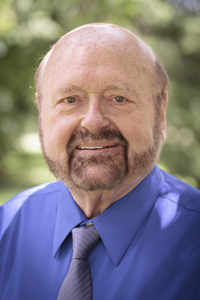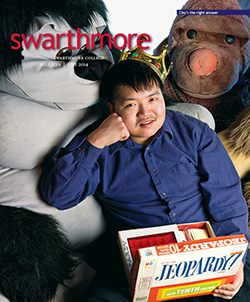3 Notables Retire
 Hans Oberdiek
Hans Oberdiek
Professor of Philosophy
Year he came to Swarthmore: 1965
Areas of expertise: moral philosophy, social and political philosophy, philosophy of law, philosophy of technology, environmental ethics
During 50 years at the College, Hans Oberdiek taught courses on the philosophy of law, including key theories of law and implications for the relation between law and morality; principles of criminal and tort law, civil disobedience, punishment and excuses, and freedom of expression and seminars on moral philosophy. A two-term departmental chair, he was also a visiting or special professor and lecturer at institutions including Temple University, the University of Florida, and Oxford University’s Lady Margaret Hall and Balliol and Trinity colleges. Oberdiek’s publications include a plethora of papers, reviews and discussion articles. He wrote two books: Living in a Technological Culture: Human Instruments and Human Values, co-authored with Mary Tiles (1995); and Tolerance: Between Forbearance and Acceptance (2001).
Quoting current department chair Tamsin Lorraine, President Chopp says that Hans’ dedication to the community “expressed itself not only in his reliably even-handed approach to any issue that arose, no matter how contentious, but the concern for his students and colleagues shone in everything he did, including his scholarly work.”
Helene Shapiro
Professor of Mathematics
Year she came to Swarthmore: 1980
Areas of expertise: linear algebra, matrix theory, abstract algebra
Helene Shapiro was a student of Olga Taussky-Todd at the California Institute of Technology and then spent a year at the University of Wisconsin–Madison before coming to Swarthmore. A two-time departmental chair, Shapiro taught calculus, linear algebra, abstract algebra, discrete mathematics, ordinary and partial differential equations, number theory, coding theory, functional analysis, complex analysis, combinatorial matrix theory, mathematical modeling, and other courses. She published articles in linear algebra and matrix theory, including a chapter in the Handbook of Linear Algebra and is completing a linear algebra book, based on chapters written for two upper-level courses. She was the first Olga Taussky-Todd/John Todd Lecturer at the 1992 ILAS (International Linear Algebra Society) meeting and editor of the 1998 special issue of LAA (Linear Algebra and Its Applications) in memory of Olga Taussky-Todd.
“Helene’s colleagues have been inspired by the rigor and high standards of a teacher who urges, even compels, her students to aspire to the heights of their potential. They describe her as one endowed with a ‘very sharp mathematical mind.’ She has served her colleagues, her profession, and the College well,” says President Chopp.
 Philip Weinstein
Philip Weinstein
Alexander Griswold Cummins Professor of English Literature
Year he came to Swarthmore: 1971
Areas of expertise: international modernism as a literary and philosophical movement; American fiction concerned with race; aesthetics and ideology of realism, modernism, and postmodernism as exemplified through the epic fictions of Tolstoy, Joyce, and García Márquez.
Weinstein’s publications include the 2014 Festschrift essay “ ‘Dangerously Free’: Morrison’s Unspeakable Territory,” for Toni Morrison’s 80th birthday; and Unknowing: The Work of Modernist Fiction (2005), Becoming Faulkner (2010), and the recent book-length manuscript Jonathan Franzen: The Comedy of Rage. Weinstein was chair of the William Faulkner Society, the 2002 Margaret Bundy Scott Visiting Professor at Williams College, and winner of the 2011 Hugh Holman Award for Becoming Faulkner.
He held visiting professorships around the nation and in France. In spring 2015, he will teach at the NYU–Abu Dhabi campus.
At a dinner in Weinstein’s honor, President Chopp said, “For more than four decades the intellectual and cultural lives of our students and faculty have been deeply and broadly enriched by the teaching and scholarship of Phil Weinstein. We will miss his steady, inspiring presence, but will continue to benefit from the legacy of his fine modeling of scholar and teacher extraordinaire.”
 Email This Page
Email This Page